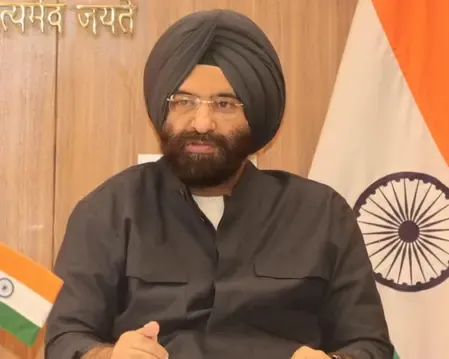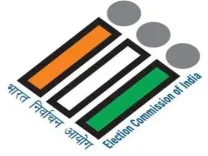Should End-of-Life Regulations Focus on Pollution Instead of Vehicle Age?

Synopsis
Key Takeaways
- Shift from age-based to pollution-based regulations.
- Innovative electric retrofitting plans announced.
- Government initiatives focus on comprehensive pollution control.
- Emphasis on varying pollution levels among vehicles.
- Potential for more flexible environmental policies.
New Delhi, July 8 (NationPress) Delhi’s Environment Minister Manjinder Singh Sirsa has emphasized the necessity for a more logical, pollution-focused strategy for phasing out old vehicles, moving past the existing age-based regulations.
In an exclusive discussion with IANS, Sirsa voiced concerns regarding the environmental repercussions of two-wheelers and three-wheelers, stating, “The decision to remove them from the roads should hinge on actual pollution metrics — not merely the vehicle's age.”
He pointed out that pollution emissions can significantly differ even among similar vehicle types. “Some two-wheelers begin to release pollutants after just five years, whereas certain four-wheelers can remain clean for over 10 years if not heavily used. It’s unjust to enforce a universal age restriction,” he remarked.
Regarding the end-of-life policies for vehicles, Sirsa unveiled an innovative plan to facilitate electric retrofitting for two-wheelers: “We are working on supplying electric kits for older scooters, allowing individuals to convert them to electric rather than disposing of them or purchasing new models. The aim is to transition those scooters into electric vehicles instead of rendering them obsolete.”
While Delhi has adopted a stringent policy against polluting four-wheelers, the minister proposed that future regulations should be based on a unified emissions standard rather than fixed timelines.
“Pollution levels, rather than the year of manufacture, should dictate policy. If a vehicle emits no pollutants, why should it face a ban just because it’s a decade old?” Sirsa added.
As the city grapples with escalating pollution levels each winter, the Delhi government aims to adapt its policies in line with advancing technology and air quality objectives. Sirsa’s statements hint at a possible transition towards more scientifically grounded and adaptable environmental regulations, particularly concerning vehicular emissions.
On the government's initiatives to combat pollution, Sirsa stated, “We are not content with just one measure — we’ve launched numerous actions to address pollution. A significant effort involves clearing garbage heaps in Delhi. So far, we’ve removed about 30 percent of this waste. Out of 200 acres, we’ve reclaimed around 35 acres and planted bamboo there. We’ve deployed water sprinklers at multiple locations, initiated mechanical sweeping of PWD roads, and mandated DPC (Damp Proof Course) monitoring for all new constructions. We’re also enhancing the infrastructure of Delhi’s roadways.”
--IANs
brt/uk










